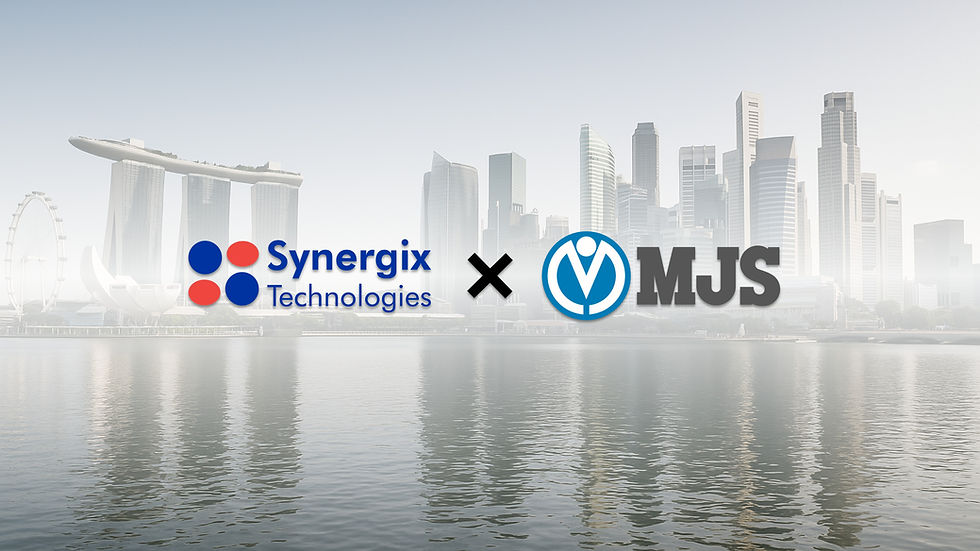AI Takes Flight: How United Airlines is Leading the Industry's Tech Revolution
- Ryan Seow
- Apr 29, 2024
- 3 min read
When you step onto a flight, you probably don't think much about the hidden world of coordination that springs into action behind the scenes. But from gate agents ensuring there's room for your carry-on to dispatchers managing real-time flight data, a complex web of technology is constantly at play. And increasingly, artificial intelligence (AI) is becoming a crucial player in this backstage drama, especially for the case of United Airlines.
Jason Birnbaum, United's Chief Information Officer, is the wizard behind the curtain making sure everything runs smoothly. He oversees a team of over 1,500 employees and 2,000 contractors dedicated to integrating AI into various aspects of the airline's operations.
Personalized Experiences, Powered by AI
One area where you might have already encountered United's AI is with flight delay notifications. In the past, you may have received a vague message about a delay without much context. But now, thanks to AI pulling data from various internal systems, United can generate personalized explanations to keep you in the loop, whether it's an incoming flight arriving late or a maintenance issue.
AI is also starting to pop up in more customer-facing roles. United recently transitioned its chat system on United.com to an AI agent to enhance customer support. And later this year, the airline plans to launch "Get Me Close" - a tool designed to assist customers during flight disruptions by offering alternative travel options to nearby airports.
But United's AI ambitions extend beyond just the passenger experience. Birnbaum's team is exploring using generative AI to summarize complex flight data for operations teams and even to assist pilots in crafting personalized pre-flight announcements.
Navigating Challenges and Looking Ahead
This AI integration is all part of United's larger push into the cloud, with Amazon Web Services (AWS) as its preferred provider. The goal is not just to chase the latest tech trends, but to optimize operations, boost reliability, and ultimately make the flying experience as smooth as possible for passengers.
Of course, implementing AI is not without risks or challenges. Concerns about data privacy, potential biases in AI systems, and the risk of AI providing incorrect information (as infamously happened with an Air Canada chatbot which even required compensation) are all factors that airlines like United must grapple with.
It goes without saying that the human element is still critical, especially when it comes to tasks like flying the actual plane. While AI might help summarize complex technical information for pilots, it will likely be quite some time before we see artificial intelligence in the cockpit due to the highly regulated nature of aviation.
Despite the challenges, United remains committed to being at the forefront of AI adoption in the airline industry. As Birnbaum notes, "I think the travel industry has so many different examples of where AI can be used both for the customer and for the employees."
The Future of Air Travel in the Age of AI
As AI continues to take flight in the travel industry, its impact is set to soar to new heights. From personalized recommendations to streamlined operations, artificial intelligence is poised to reshape the way we experience air travel.
Imagine a future where your United app not only knows your destination but also your preferences - suggesting the perfect in-flight meal, the most convenient seat, and even the best activities to explore during your layover. AI could transform the airline into your personal travel concierge, anticipating your needs and elevating your journey to new altitudes of comfort and convenience.
But United isn't the only player in this high-stakes game. Airbnb, the digital disruptor that revolutionized accommodations, is also harnessing the power of AI to shake up the travel agency world. With its vast trove of user data and advanced algorithms, Airbnb is well-positioned to offer hyper-personalized travel experiences that traditional agencies simply can't match.
As these tech titans vie for dominance in the skies, one thing remains clear: AI is not just a passing trend but a powerful force that will continue to shape the future of travel. For airlines like United, embracing this technology is not just a matter of staying competitive but of redefining what it means to deliver friendly, seamless service in the digital age.
As AI spreads its wings in the airline industry, it will be up to companies like United to navigate the delicate balance between innovation and privacy, efficiency and humanity. The skies ahead are filled with both promise and uncertainty, but one thing is certain: the journey will be anything but boring. Buckle up and prepare for takeoff - the future of air travel is about to get a whole lot smarter.






Comments